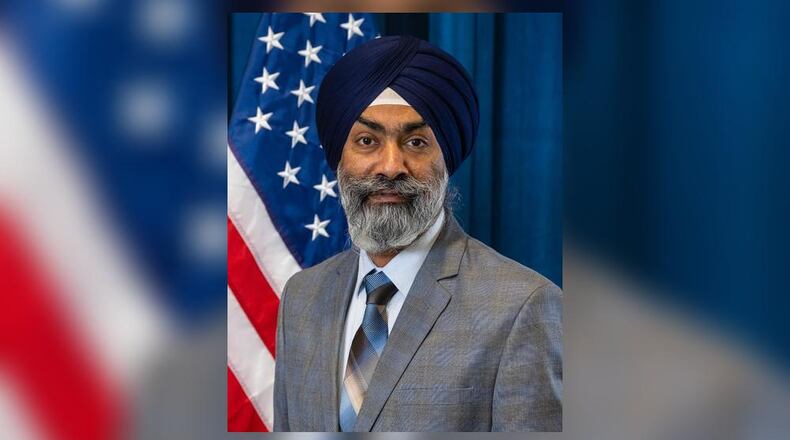A quick call to our family friend’s son from Amritsar, Punjab in India, who also visits this store regularly, brought some relief, but concerns for the safety of many other shoppers lingered. He confirmed that the university had advised all students to stay away from the area just minutes ago.
On that evening, as I contemplated whether to go to Walmart or a few miles further to Kroger for medicine around 8:30pm, the sudden arrival of police vehicles at the nearby Walmart traffic light raised concerns. We generally avoid going to this Walmart, which is very close to our home. The decision to go to Kroger or proceed to Walmart became more significant as police vehicles continued to arrive. Crossing the traffic light, the fear turned into reality as I witnessed the Walmart parking lot filled with police and emergency vehicles.
This Walmart in Beavercreek has unfortunately been in the news for notable incidents in the past, adding to the unsettling nature of the situation. This includes the tragic shooting of John Crawford, a 22-year-old African-American man shot and killed by a Beavercreek police officer while holding a pellet gun in the store. The memories of such events and protests that followed after the incident still linger in our community.
After reading in the news about this recent November shooting that shooter may have been at least partially motivated by “racially or ethnically motivated violent ideologies,” it is scary to think about what he could have done if he had gone to the nearby university campus.
Coincidentally, the police officer who shot John lived four houses away from my current residence in Beavercreek. The officer and my family moved to the neighborhood at almost the same time in March 2010. Unfortunately, after the incident they sold their home and left the neighborhood. Our community in the neighborhood is very diverse and we used to meet regularly. The incident left all of us shattered.
I am a bit cautious when going to Walmart, influenced by some unfortunate experiences after we moved from Fairborn to Troy, Ohio in May 2007 to be closer to my work. As a Sikh, I keep unshorn hair, have a beard and wear a turban. Due to mistaken identity, many Sikh community members in the US were subjected to hate crimes following the 9/11 attack on the US.
At the Troy Walmart, I was approached by someone saying, “What you going to bomb next?” and few times heard shouts of “Osama” or many other offensive words. These incidents, coupled with the feeling that Troy being in the countryside with less diverse communities and having a very small Sikh community compared to Beavercreek, were significant factors that led my wife and me to decide to move to the city with our two-year-old son and six-month old daughter in March 2010. Apart from these few incidents in Troy, I have not experienced anything like that at the Beavercreek Walmart or in the area.
The night of fear at the store serves as a stark reminder of the vulnerability of even the most serene communities to unforeseen acts of violence. In times like these, our collective hope is that such incidents cease and everyone can live in harmony, uncertain of what the next breath or second may bring.
Community leaders, policymakers, and individuals must work together to foster a society that values diversity and inclusivity, where differences are celebrated rather than feared. By acknowledging our shared responsibility and working towards a more inclusive future, we can hope to break the cycle of hatred and ensure that tragedies like these becomes lessons rather than recurring nightmares.
Our gratitude to the dispatchers, police officers and fire personnel who quickly responded to confront the threat and treat the victims within minutes of the incident. Our prayers and thoughts are with the victims.
Sameep Singh Gumtala, a Wright State University alumnus, is a Sikh immigrant from Amritsar in Punjab, India.
About the Author
